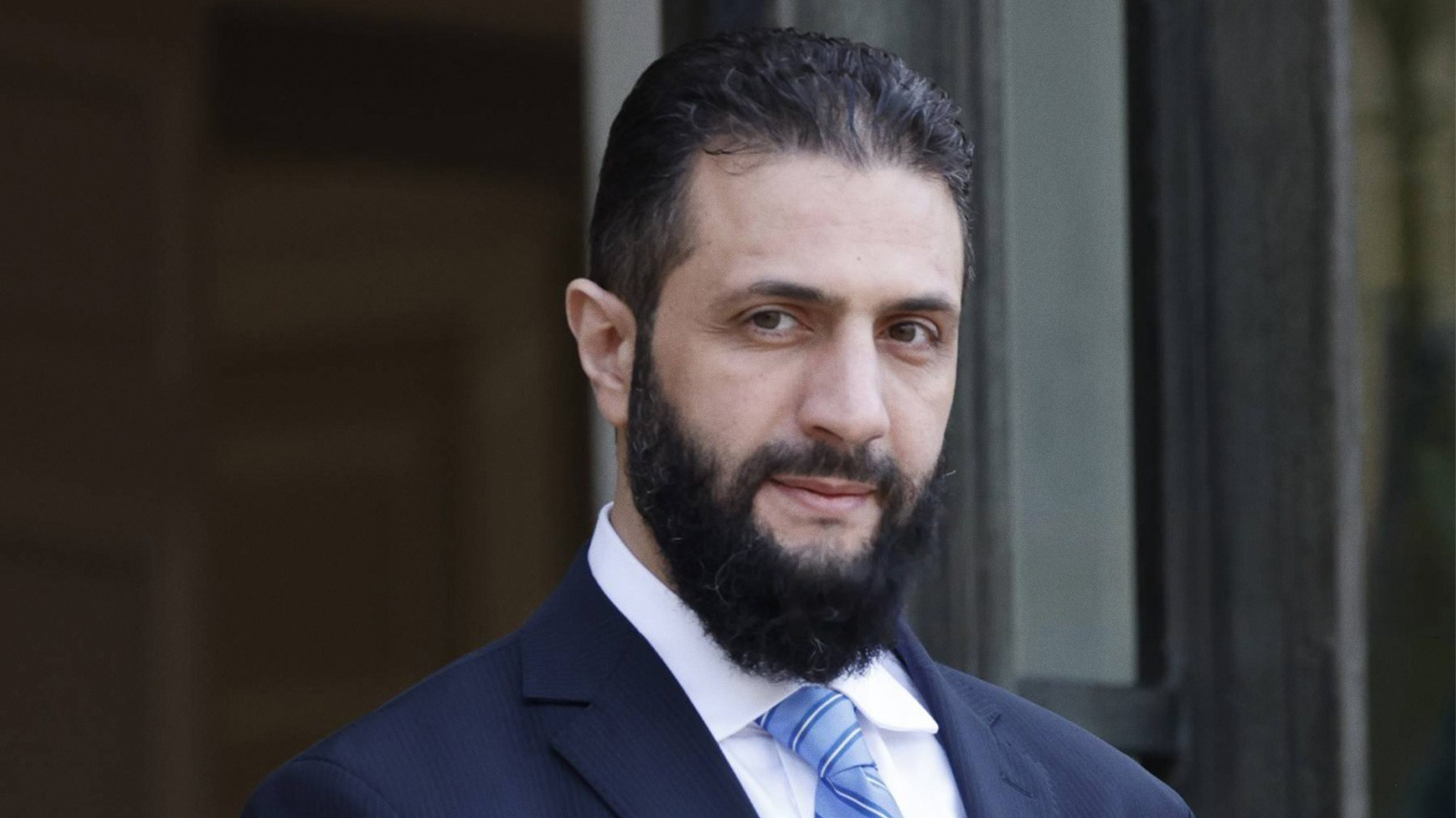'We Have Common Enemies,' Says al-Sharaa, Hinting at New Syria-Israel Dynamics
"The era of endless tit-for-tat bombings must end. No nation prospers when its skies are filled with fear," al-Sharaa said.

By Kamaran Aziz
ERBIL (Kurdistan24) – In a dramatic departure from long-standing hostilities, Syria’s self-declared interim President Ahmad al-Sharaa — formerly known as Al-Qaeda figure Abu Mohammad al-Julani — has publicly stated his willingness to engage with Israel, citing "common enemies" and a need to reduce regional tensions.
The statements were made during an exclusive interview with the Jewish Journal, a Los Angeles-based publication, and were reported by The Cradle.
"The era of endless tit-for-tat bombings must end. No nation prospers when its skies are filled with fear," al-Sharaa said. "The reality is, we have common enemies — and we can play a major role in regional security."
Al-Sharaa, who emerged as the de facto leader following the takeover of much of Syria by extremist groups in December, added, "Peace must be earned through mutual respect, not fear. We will engage where there is honesty and a clear path to coexistence — and walk away from anything less."
His remarks come amid increasing speculation in Western media that Israeli and Syrian officials have been holding direct talks to avoid renewed hostilities along the Golan Heights, Quneitra, and Deraa — regions currently under Israeli occupation following its rapid strikes and territorial gains after the collapse of Syrian central authority.
Al-Sharaa also called for revisiting the 1974 Disengagement Agreement, also known as the Dofa Accord, proposing it as a framework for “mutual restraint and protection of civilians.” This agreement, historically brokered to reduce direct conflict between Israel and Syria in the aftermath of the Yom Kippur War, may now be revived as a platform for de-escalation.
In comments reported earlier this month, al-Sharaa confirmed that Damascus is involved in indirect talks with Israel through mediators, aiming to prevent the current situation from spiraling out of control. “There are indirect talks with Israel through mediators to calm and attempt to absorb the situation so that it does not reach a level that both sides lose control over,” he said.
Nevertheless, he described Israel's ongoing military interventions as “random” and urged foreign actors to pressure Tel Aviv into halting strikes on Syrian infrastructure. “Damascus was talking to states that communicate with Israel to pressure them to stop intervening in Syrian affairs and bomb some of its infrastructure,” he stated.
The interview marks a significant rhetorical shift for a figure long associated with Islamist militancy and fierce anti-Israel ideology. Al-Sharaa’s overture toward dialogue — albeit under conditional terms — underscores a complex new geopolitical reality in Syria, where former adversaries may now be exploring channels for pragmatic coexistence amid overlapping security threats.
The developments come as international stakeholders continue to grapple with Syria's fragmentation and the growing influence of non-state actors. Whether these statements will materialize into meaningful dialogue remains to be seen, but they indicate a tentative recalibration of alliances and diplomatic priorities in a war-ravaged region.